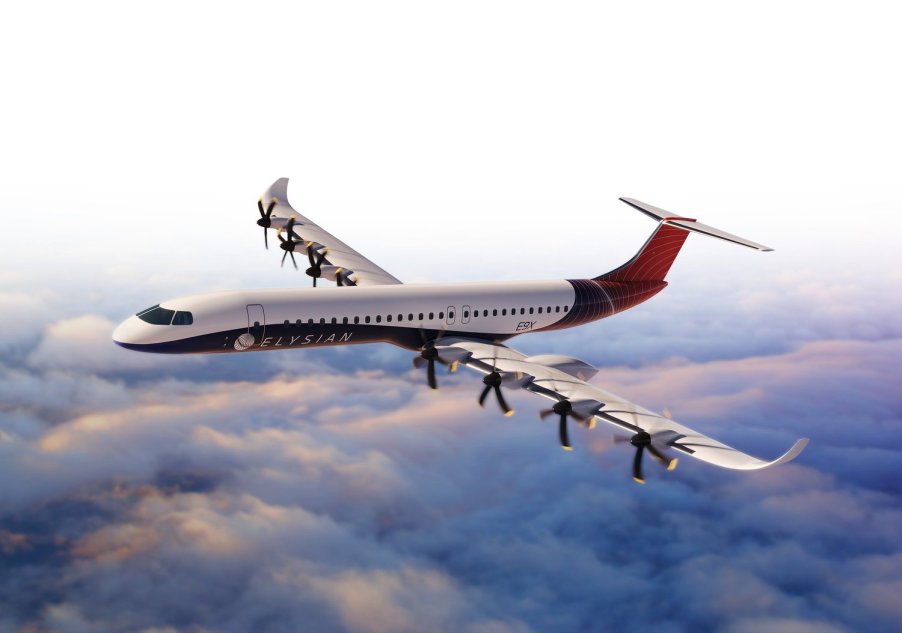
If EV Cars Sound Scary, What About a Fully Electric Airplane?
People have their reservations about electric cars. There’s range anxiety, battery failure, a sudden loss of charge, and charging problems. But what if you made an electric vehicle on a much larger scale? For example, there is an electric airplane.
Would you ride on an electric airplane?
With all of the issues that Boeing has faced, an electric airplane might sound like a safer option. Plus, it’s much greener.
Commercial aviation isn’t doing so well in terms of reducing climate impact and it’s not on track to meet its goal of net-zero emissions by 2050.
However, Dutch startup, Elysian has designed a fully electric regional aircraft. It will have a range of at least 500 miles and can carry 90 passengers.
But I’m skeptical after driving multiple electric vehicles. Towing with them reduces the charge at a rapid rate. Therefore, I can assume that heavier passengers and more luggage would reduce the plane’s range.
Also, battery technology is barely there to make EVs an efficient or affordable choice. It needs to evolve before powering planes. They need to be smaller too.
The batteries needed to power a 2500 truck weigh more than a Honda Civic. So how much weight would it add to a plane?
But Sylsian is shooting for the stars and plans to have its plane fly commercially within a decade. It should be able to handle shorter trips, at least. It will also reduce emissions by 90%.
The E9X electric airplane only exists on paper, but Elysian plans to have the full-scale prototype ready by 2030.
The key to success and getting the most out of today’s battery tech is being different. The EX9 won’t look like the traditional jets we’re used to. It will need less structural weight.

To distribute the weight of the batteries, the E9X will have a wingspan of 138 feet, which is larger than a Boeing 737 and can carry more than double the number of passengers.
The E9X will also have a smaller fuselage and eight propellers. A gas-turbine-based revere energy system will provide emergency power if needed. Elysian hopes to get the charging time down to 45 minutes.
This is a wild idea that could greatly reduce emissions, but the limited range and passenger space are concerns. I also wouldn’t want to be on any test flights without a parachute.



